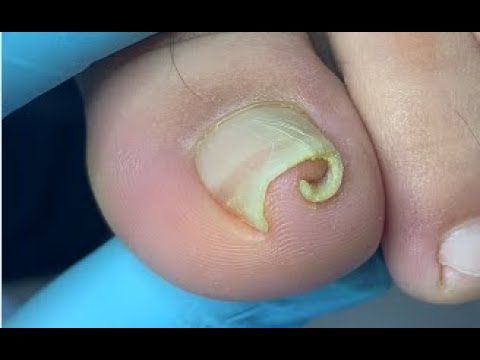Involuted nails.
Involuted toenails are characterized by curling or curving of the nail and can lead to discomfort and potential complications if left unmanaged.
Several factors contribute to the development of involuted nails, including a naturally wide nail plate, lifelong pressure from footwear, and trauma to the nail. These factors disrupt the normal growth pattern, resulting in a toenail that is involuted.
Involuted toenails can lead to various complications, primarily due to the pressure exerted by the curved nail on the surrounding skin. One common secondary issue is the development of corns, which are hard pockets of callous that cause pain and discomfort. Corns can form due to the constant friction and pressure between the involuted nail and the skin.
Managing involuted toenails can be challenging for individuals due to the nail's curved shape. Trimming and maintaining the nails properly become difficult tasks, increasing the risk of improper nail care. Moreover, the curling of involuted nails can lead to the development of ingrown toenails. Ingrown toenails occur when the nail grows into the surrounding skin, leading to pain, swelling, redness, and potential infection if left untreated.

The Role of a Podiatrist in Involuted Toenail Care
Seeking regular nail care from a podiatrist plays a crucial role in managing involuted toenails effectively.
Treatment may involve trimming and reshaping the nail to reduce the risk of ingrown nails and relieve discomfort and pain. The podiatrist will also address any corn or callous formations in the surrounding area that may be contributing to symptoms of discomfort.
Additionally, podiatrists offer advice on proper nail care techniques and provide recommendations for footwear that alleviate pressure and reduce further trauma to the nails. Regular visits to a podiatrist for nail maintenance are vital in preventing discomfort and pain and reducing the risk of complications associated with involuted toenails.
